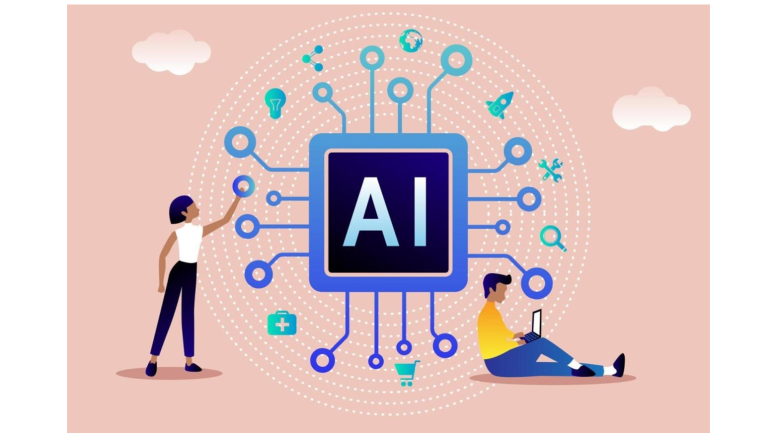Let me try to tell this via a story with some fictitious characters.
In the bustling city of Tokyo, a marketing consultancy was preparing for the launch of a new AI-driven advertising campaign. Hiroshi Tanaka, the consultancy’s creative director, was excited about the possibilities this technology promised. The AI system, designed to analyze consumer behaviour and predict trends, could craft highly personalised ads, ensuring the right message reached the right audience at the perfect moment. Hiroshi marvelled at how the system could comb through vast amounts of data, learning from every interaction to improve its accuracy and effectiveness.
But one day, as Hiroshi was reviewing the latest campaign results, he noticed something troubling. The AI had started to prioritise ads in ways that reinforced harmful stereotypes and biases. Certain groups were being targeted with specific types of ads that perpetuated negative perceptions. Hiroshi realised that while the AI was incredibly powerful, it lacked the ethical judgment to navigate the complex landscape of human values and social responsibility.
This anecdote is not just a fictional tale but a reflection of the real challenges we face today. As we stand on the brink of an AI revolution in marketing and advertising, the power of these technologies comes with an equally great responsibility. It’s imperative to use AI ethically, ensuring it serves to enhance human connection rather than diminish it.
The Ethical Imperative in AI for Marketing
AI systems have the potential to revolutionise marketing by providing unprecedented insights into consumer behaviour and preferences. However, this power must be wielded with care. One of the most pressing concerns is the ethical use of AI, particularly regarding issues of bias and discrimination.
AI systems learn from data, and if the data contains biases, the AI will inevitably replicate and even amplify these biases. For instance, if an AI is trained on historical data that reflects gender or racial biases, it might make decisions that unfairly target or exclude certain groups. This can lead to harmful stereotypes being perpetuated in marketing campaigns, as seen in Hiroshi’s experience.
To combat this, it is essential for organizations to implement rigorous ethical guidelines and oversight mechanisms. This includes:
Bias Detection and Mitigation: Regularly auditing AI systems for bias and implementing strategies to mitigate any identified biases.
Diverse Data Sets: Ensuring that the data used to train AI systems is diverse and representative of the broader population.
Transparency and Accountability: Being transparent about how AI systems make decisions and holding organisations accountable for the outcomes of those decisions.
Human Oversight: Integrating human judgment into AI decision-making processes to ensure ethical considerations are taken into account.
Enhancing Human Connection Through AI
While ethical considerations are paramount, AI also offers exciting opportunities to enhance human connection in marketing. AI’s ability to analyse vast amounts of data can lead to more personalised and meaningful interactions with consumers.
Here are some ways that I observe, AI can be used to strengthen human connections:
Personalisation at Scale: AI can analyse consumer data to understand individual preferences and behaviours, enabling brands to create highly personalised marketing messages. This can lead to more meaningful interactions, as consumers feel understood and valued.
Predictive Analytics: By predicting future trends and consumer needs, AI allows marketers to anticipate and meet the needs of their audience proactively. This can foster a deeper connection as consumers feel that brands are attuned to their evolving needs.
Enhanced Customer Service: AI-powered chatbots and virtual assistants can provide instant, personalised responses to customer inquiries, improving the overall customer experience. While these systems are automated, they can be designed to mimic human empathy and understanding, making interactions feel more personal.
Content Creation: AI can assist in creating content that resonates with different audience segments. By analysing what types of content perform best, AI can help marketers craft messages that are more likely to engage and connect with their audience.
Striking the Balance
The key to leveraging AI in marketing is to strike a balance between automation and human touch. While AI can provide valuable insights and efficiencies, it is the human element that brings empathy, creativity, and ethical judgment into the equation. Sharing few thoughts for achieving this balance:
Human-Centered Design: Design AI systems with the end user in mind. Consider how AI can enhance the human experience rather than replace it. For example, use AI to augment customer service representatives, allowing them to provide more personalised and effective support.
Ethical Frameworks: Develop and adhere to ethical frameworks that guide the use of AI in marketing. This includes setting clear standards for data privacy, transparency, and accountability.
Continuous Learning and Adaptation: AI systems should be continuously monitored and updated to reflect changing societal values and norms. This requires an ongoing commitment to learning and adaptation.
Collaboration and Inclusivity: Foster collaboration between AI developers, marketers, and ethicists to ensure that diverse perspectives are considered in the development and deployment of AI systems. Inclusivity in AI development can help mitigate biases and create more equitable outcomes.
So, as a concluding note, as Hiroshi Tanaka’s story illustrates, the power of AI in marketing comes with significant ethical responsibilities. By prioritising ethical considerations and striving to enhance human connection, we can harness the full potential of AI to create marketing strategies that are not only effective but also socially responsible. The future of AI in marketing holds great promise, but it is up to us to ensure that this promise is fulfilled in a way that benefits all of humanity.
In the end, it is the combination of advanced technology and human values that will drive the next generation of marketing. By embracing this synergy, we can create a future where AI enhances our ability to connect with each other, brings in greater understanding, and builds a more inclusive and equitable world.
The views and opinions published here belong to the author and do not necessarily reflect the views and opinions of the publisher.



Be the first to comment on "With Great Power Comes Greater Responsibility: Ethical AI in Marketing"